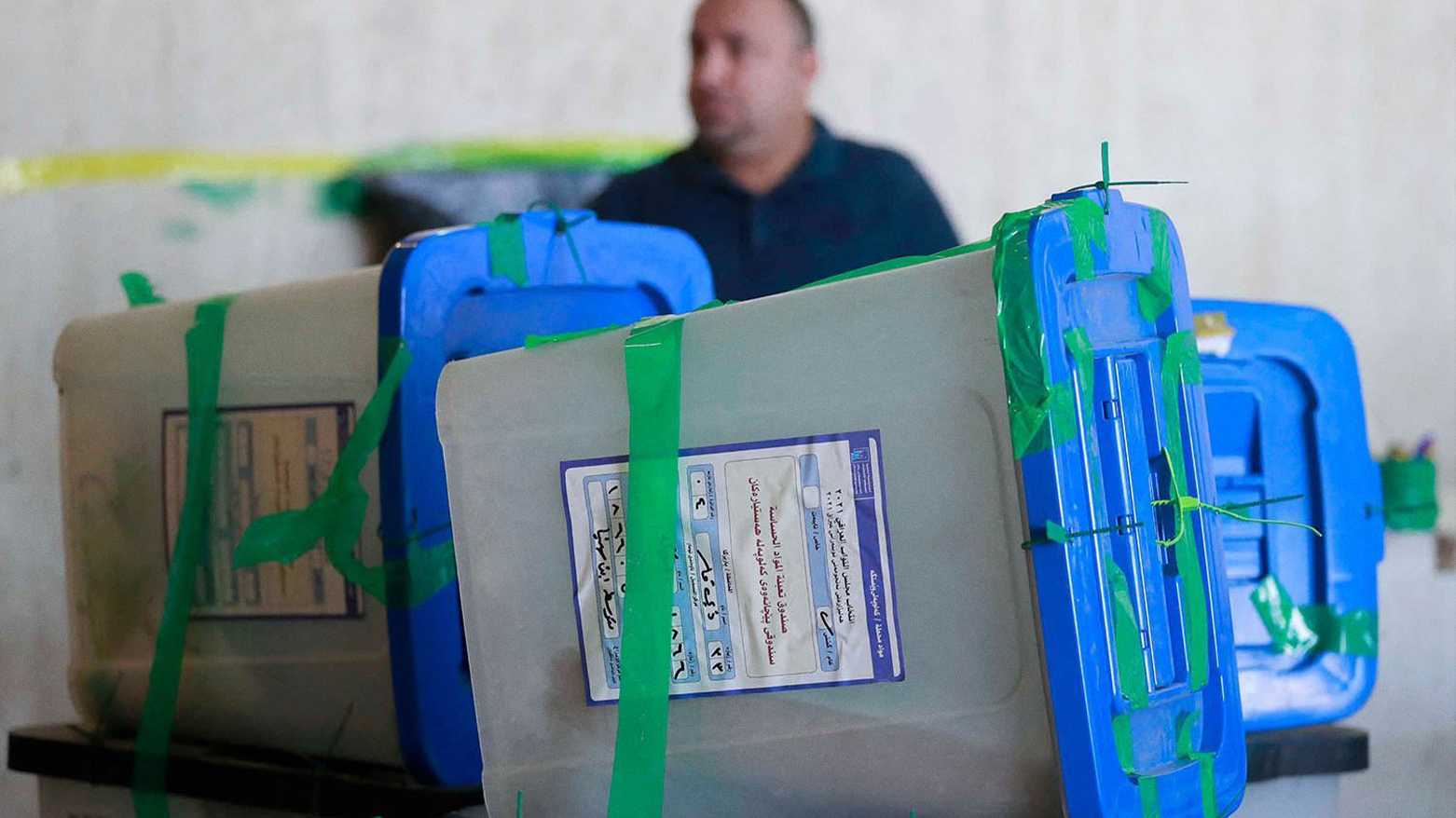De-Baathification Spat Roils Upcoming Iraqi Election
Iraq's upcoming elections face turmoil as hundreds of candidates may be banned over Baathist ties, igniting a political feud between rivals Nouri al-Maliki and Prime Minister al-Sudani amid accusations of a plot to destabilize the country.

ERBIL (Kurdistan24) – A significant political crisis is brewing in Iraq as hundreds of candidates face potential disqualification from upcoming elections over alleged ties to the banned Baath Party, sparking a firestorm of accusations of political sabotage and destabilization.
According to a report from the Al-Mada newspaper on Sunday, the number of exclusions could be the highest in the last decade, placing rival political factions on a collision course and threatening the integrity of the electoral process.
The controversy centers on the implementation of "Accountability and Justice" procedures, which under Iraqi law prohibit members of the former Baathist regime or its repressive agencies from participating in elections.
According to the Al-Mada report, independent Member of Parliament Yasser al-Husseini asserted that there is an "exaggeration" of the numbers of those being subjected to these procedures with the aim of destabilizing the country's security.
In a statement to Al-Mada, al-Husseini said that "twenty candidates" have been excluded so far, but this figure is sharply contradicted by unofficial statistics circulating in political circles suggesting that about "five hundred candidates" are facing "De-Baathification" measures. With an estimated eight thousand candidates expected to compete, such a large number of exclusions would represent a major political event.
Fueling the dispute, former Prime Minister Nouri al-Maliki has intensified his warnings about the infiltration of Baathists into state institutions.
In recent speeches, al-Maliki stated that "The Iraqi constitution stipulated the banning of the Baath Party and preventing its symbols from returning to political life under any name or title," calling party affiliation "a crime not subject to a statute of limitations."
He emphasized that the National Commission for Accountability and Justice is the specialized body for identifying and taking legal action against Baathists, and that "any leniency or overlooking of these procedures means opening the door to the infiltration of state institutions."
Researcher and academic Mohammed Na'naa believes that al-Maliki's warnings are specifically targeting rival electoral lists, most notably the "Reconstruction and Development Coalition" of Prime Minister Mohammed al-Sudani.
According to the Al-Mada report, social media platforms have circulated the names of several candidates on the Prime Minister's coalition who are allegedly subject to the procedures, including former Saladin official Ismail al-Hloob and parliamentarians Haitham al-Zahwan and Muzahim al-Tamimi.
Na'naa told Al-Mada, "Maliki is trying to reduce the chances of his competitors in his electoral base, but his claim is not without merit, as there are indeed individuals subject to de-Baathification running on other lists."
However, Na'naa also downplayed the notion of a coordinated Baathist resurgence, explaining to the newspaper, "These individuals are running as individuals; there is no process for a Baathist takeover of power at present."
The Prime Minister himself has faced accusations related to the issue, including an attempt to appoint a government advisor who served under the former regime and two attempts in 2024 to close the "de-Baathification" file and transfer it to the judiciary, as was reportedly stipulated in the political agreement that formed his government.
The Accountability and Justice Commission has resisted these moves, telling Al-Mada that it refuses to transfer its archives until "new legislation is enacted," stressing that millions of documents remain under review and that no less than one million Iraqis are subject to its procedures.
For his part, MP Yasser al-Husseini believes that raising the issue at this time is "part of a foreign-coordinated plot," while also warning of potential "exceptions" for certain officials and calling for "the law to be applied to everyone."
As the election approaches, Iraq's Judicial Council has stressed the need to scrutinize all files and apply the law strictly to prevent anyone associated with the banned party from reaching parliament.
